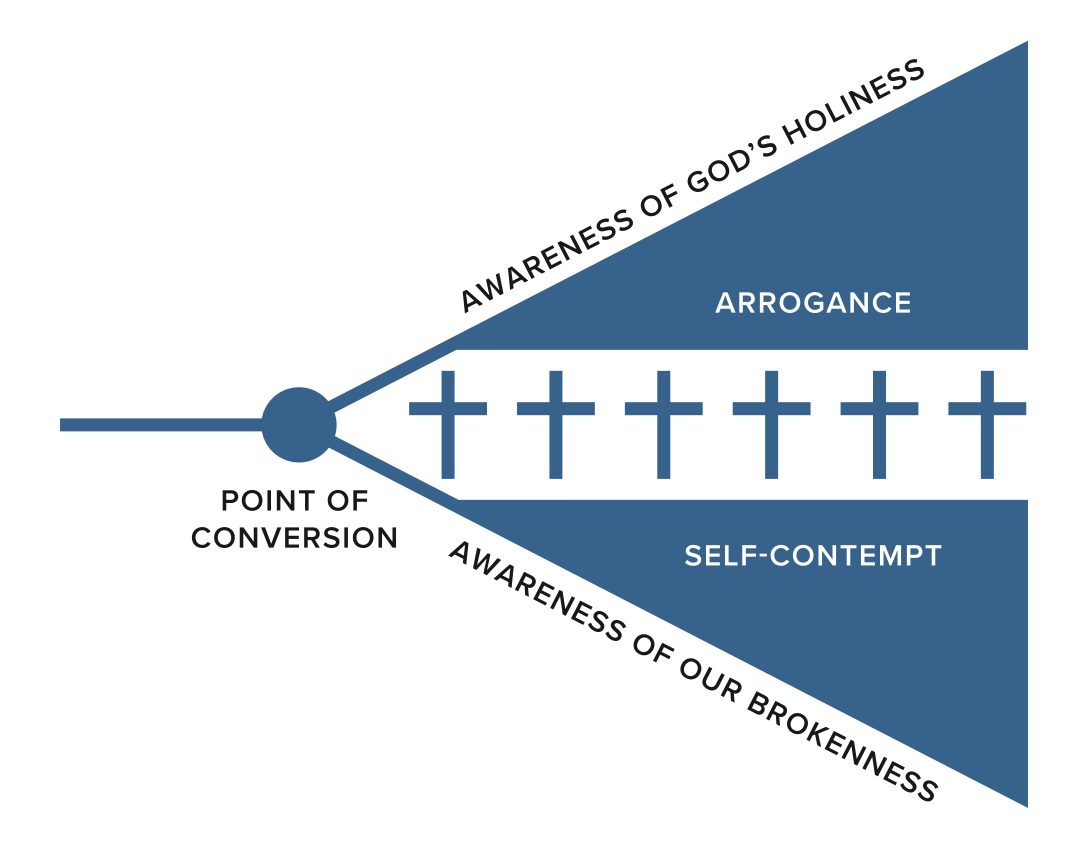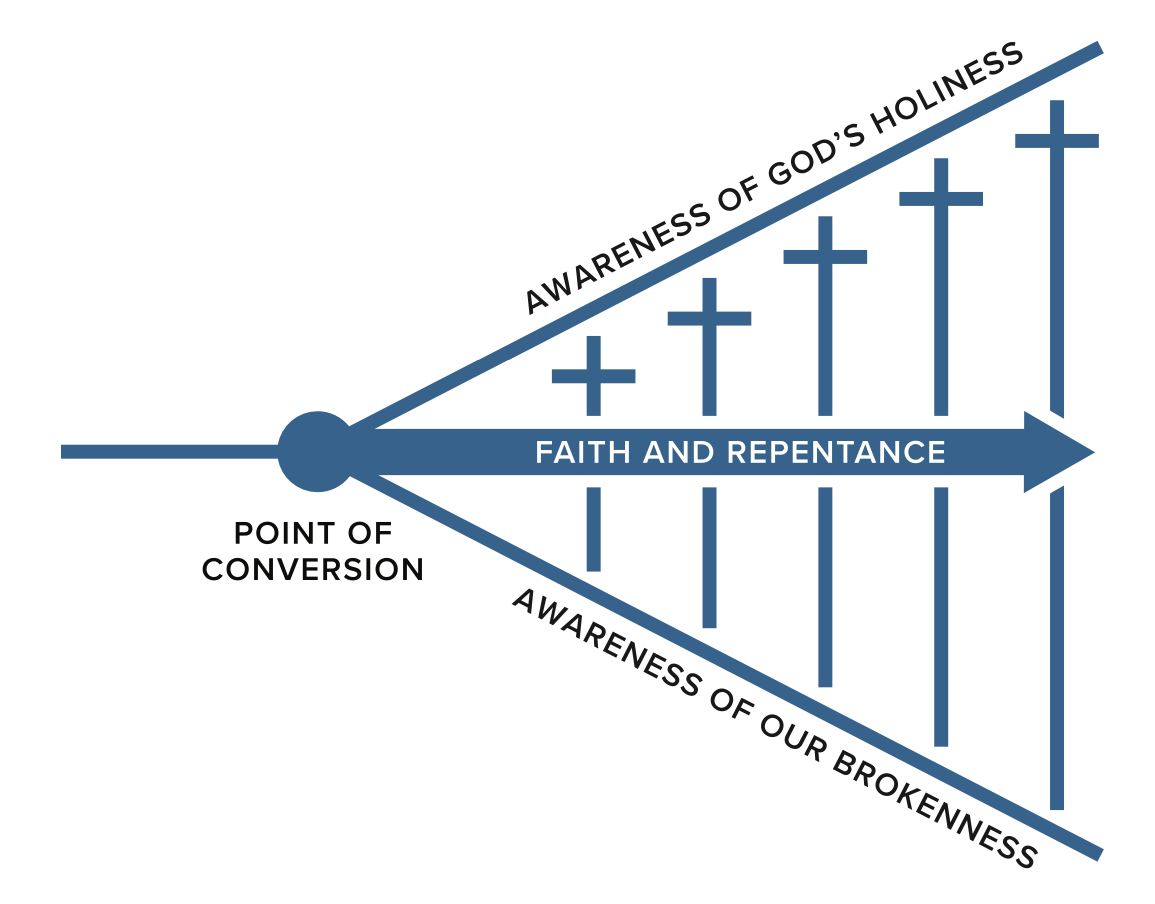Living in the city is exhausting. The deadlines, subway delays, and disappointments can all empty us of the energy and vitality we once had, and leave us resentful and bitter toward those around us. How does life with God impact our experience and ability to not just survive the city but thrive in it? What’s the difference between a Spirit-filled life and one that is fueled by our own resources, strength, or ability?
OBJECTIVE
To explore and discuss the role of the Holy Spirit in the life of a surrendered and seamless leader. Over the course of this lesson, you will…
- Learn about the person of the Holy Spirit and how to keep in step with Him.
- Practice the discipline of Spiritual Breathing. • Reflect on your own pursuit of excellence vs. performance orientation.
- Discuss the exercises with a process partner.
“And if the Spirit of him who raised Jesus from the dead is living in you, he who raised Christ from the dead will also give life to your mortal bodies because of his Spirit who lives in you.”
ROMANS 8:11 (NIV)
UNDERSTAND
Often in our desire to grow, we put pressure on ourselves to perfect and “get it right” instead of enjoying the intimacy and power of the Holy Spirit. When we surrender to the Spirit of God, we do so to cultivate intimacy with a God who loves us passionately and accepts us completely.
How would living from a place of security change you? How does this relate to the difference between perfectionism and excellence in a place like New York?
This struggle is not only a modern-day reality. Paul spoke about this to the church in Galatia:
“You foolish Galatians! Who has bewitched you? Before your very eyes Jesus Christ was clearly portrayed as crucified. I would like to learn just one thing from you: Did you receive the Spirit by the works of the law, or by believing what you heard? Are you so foolish? After beginning by means of the Spirit, are you now trying to finish by means of the flesh?”
GALATIANS 3:1-3 (NIV)
What we began by faith in salvation, we continue by faith in keeping in step with Spirit inside of us. As Eugene Peterson says, “If you weren’t smart enough or strong enough to begin it, how do you suppose you could perfect it?” We pay attention to the work of the Spirit in our lives and we respond to Him, not in performance, but in repentance and faith. The believer is not working to secure these realities, but seeking to live in light of them.
Performance vs. Repentance (for print this image needs to be shown in its final form)

The Sanctification Model
Growing in awareness of God’s holiness also makes us more keenly aware of our brokenness. The experience of the growing gap can leave us desperate, and with two choices to make. We can:
1. Try harder.
This performance leads either to arrogance (“Look at how I have my life together”) or it leads to self-contempt (“I should have known better/I should have it together by now/I failed again!”). This choice often can lead us to avoidance, numbing, and thoughts of giving up.
2. Repent and surrender to the Spirit.
When we humbly accept our brokenness, we are free to repent and believe that Jesus has already given you His righteousness through His Spirit who lives inside of you. We surrender to His power in a healthy admission that He can do it, we cannot. When we repent, we turn back to restore intimacy and count as true the secure relationship we already have. We cry out and ask for the Spirit to empower us to stay in His presence and keep in step with him.
Living the Spirit-filled life allows us to pursue excellence without the pressure of perfectionism. If we desire to be a generation of leaders who are self-differentiated, able to engage authentically with those who don’t know Christ, and a people who loves others with passion, we will need to surrender to the supernatural work of the Spirit in our lives.

PRACTICE
The essence of the Christian life is what God does in and through us, not what we do for God. Christ’s life is reproduced in the believer by the power of the Holy Spirit. To be filled with the Spirit is to be directed and empowered by Him.
Who is this Holy Spirit?
Write down your responses to the following questions.
- What are your beliefs, presumptions, and experiences of the Holy Spirit?
- Take a look at the following Scriptures that mention the Holy Spirit. What do you see are the different roles of the Holy Spirit?
• Ezekiel 36:24-28 • John 7:37-39
• John 14:15-31
• Romans 8:1-16
• Galatians 5:13-25 - What is confirmed and what are gaps between your presumptions, experiences and knowledge of the Holy Spirit?
- What keeps you from abandoning yourself to a lifestyle of depending on the Spirit?
- What would your life look like, if you learned to depend on the Spirit more? How would intimacy with God improve? How would the need to perform decrease?
Spiritual Breathing
Spiritual Breathing is a practice that helps us experience ongoing relational intimacy with Jesus. It’s a word picture to help us understand moment-by-moment dependence upon the Spirit. This practice can help you engage in a lifestyle of depending upon the Spirit. Take a moment each day to journal briefly about your experience — the challenges and the benefits.
Exhale: Sit with God and ask Him to search your heart. To confess means “to agree with God.” People often refer to confession only
in the context of sin, but often we must also acknowledge that we need His Spirit to fill and direct us. We need to confess our need for Him. Take a moment to confess your need to God, your emptiness, brokenness, and sin, the moment you become aware of it. Agree with God concerning all of it and thank Him for His presence and forgiveness, according to I John 1:9 and Hebrews 10:1-25. Confession requires repentance—a change in attitude and action.
Inhale: Just like taking in a breath, receive God’s free gift of forgiveness through Jesus. Surrender control of your life to Christ, and rely upon the Holy Spirit to fill you with His presence and power by faith, according to His command (Ephesians 5:18) and promise (I John 5:14-15). Just as we originally were permanently indwelled with the Spirit by faith, we are continually filled day to day with the Holy Spirit by faith alone. By faith, we experience God’s power through the Spirit.
“I pray that out of His glorious riches He may strengthen you with power through His Spirit in your inner being, so that Christ may dwell in your hearts through faith.”
EPHESIANS 4:16-17 (NIV)
PROCESS
Process with a partner what you learned, are reminded of, discovered, and questioned, as you studied the Scriptures on the Holy Spirit (and it’s practical implications).
Debrief the Spiritual Breathing exercise.
- What was hard? Did it make a difference in your day? Etc.
- How were you aware of your tendency to rely on yourself? How does self-reliance lead to exhaustion?
- Where did you see God turn your weakness into strength? How did you experience freedom? Discuss with one another how to cultivate an intimate, day-to-day, moment- by-moment, walk with the Spirit.
ACT
The principle of spiritual breathing is inspired by Ephesians 5:18, where we are instructed to “be filled with the Spirit.” To remind yourself to practice this process, set a reminder on your phone for 5:18 (you can pick AM or PM) and label it “spiritually breath.” At the end of the week, reflect and journal on how it went.
“The world is not moved by love or actions that are of human creation. And the church is not empowered to live differently from any other gathering of people without the Holy Spirit. But when believers live in the power of the Spirit, the evidence in their lives is supernatural. The church cannot help but be different, and the world cannot help but notice.”
FRANCIS CHAN
WANT MORE?
Spirit-Filled is a part of the Leadership Development Guide.
